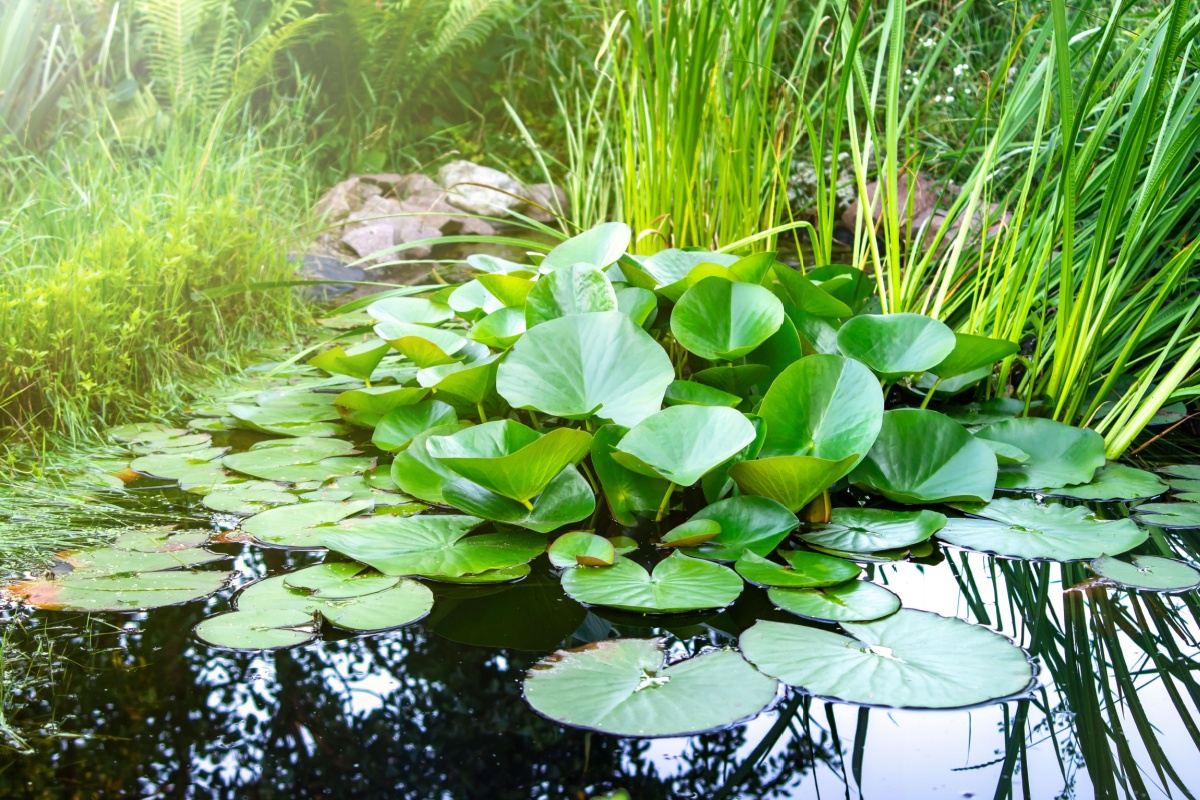Pond & Lake Dredging Services in Florida
Over time, organic matter, sediment, and waste naturally accumulate at the bottom of ponds and lakes. While this process is gradual, it can have a significant impact on the health of your water body. For example, as organic matter builds up, it creates an ideal environment for algae growth that, left unchecked, can rapidly spread, deplete oxygen levels, and disrupt the natural beauty and ecosystem of your pond or lake. In order to prevent these harmful conditions, it’s important to have the body of water professionally dredged from time to time.
Dredging restores the clarity, health, and longevity of your water body by removing sediment and waste. At Aquagenix, we are proud to provide lake and pond dredging services in Florida, South Carolina, and Georgia. Our specialized solutions target everything from algae buildup to invasive aquatic vegetation, restoring balance to your water’s ecosystem and preserving the beauty and health of your pond or lake.


What Happens If a Pond or Lake Isn’t Properly Dredged?
Neglecting to dredge your pond or lake on a regular basis can have serious consequences. For example, as organic matter and sediment buildup, you could be left dealing with the following problems:
Algae Blooms
The nutrient-rich buildup at the bottom of the water body creates the perfect breeding ground for algae. Unchecked algae growth can lead to unsightly and potentially toxic blooms that can harm aquatic life and make the water unsuitable for recreational use.
Oxygen Depletion
As algae and organic materials decay, they consume oxygen, which decreases the levels available for fish and plant life. Low oxygen levels lead to “dead zones,” where fish and other creatures cannot survive, ultimately causing an ecosystem imbalance that can be challenging to reverse.
Reduced Water Depth
Accumulated sediment gradually reduces the depth of a pond or lake, which can impact recreational activities, boating, and the overall enjoyment of the water. Additionally, shallow ponds are more prone to temperature fluctuations, leading to additional challenges in maintaining water quality and biodiversity.
Habitat Destruction
The buildup of muck and silt on the bottom of the water body can smother and destroy the natural habitats of fish, plants, and other aquatic organisms, leading to a decline in biodiversity.
Foul Odors and Unsightly Appearance
The decomposition of organic matter can release unpleasant odors, and the murky, discolored water can make your pond or lake an eyesore in your landscape. With regular pond and lake dredging, these issues can be addressed and prevented, ensuring your body of water remains an enjoyable feature on your property.
Two Types of Lake & Pond Dredging: Mechanical and Hydraulic
Aquagenix offers two types of dredging methods to restore and maintain ponds and lakes: mechanical dredging and hydraulic dredging. Each has its unique advantages, and the choice depends on the specific needs and conditions of your water body.
Mechanical Dredging
Mechanical dredging is a traditional method where heavy machinery removes sediment and debris from the pond or lake. This technique is especially effective for situations where sediment has compacted heavily over time or sediment buildup needs to be removed from a smaller area.
Hydraulic Dredging
Hydraulic dredging, on the other hand, uses pumps and hoses to create a slurry of sediment and water, which is then pumped out of the pond or lake to a designated location. Here, the water is filtered out, and the sediment is retained for disposal or reuse.
Hydraulic dredging is often the preferred method for larger water bodies, as the dredging equipment can operate from the middle of the lake or pond, reducing the need for heavy machinery on the shoreline. This method is also efficient for larger lakes or when sediment has spread widely.
How to Prevent the Need for Dredging
While dredging is a highly effective solution, it is also costly and invasive. For this reason, it is better to take preventative measures to manage the accumulation of sediment and organic matter. Keep your pond or lake in optimal condition with these solutions:
- Implement Aeration Systems: Installing aeration systems can help improve water quality, promote the breakdown of organic matter, and discourage the growth of harmful algae.
- Manage Vegetation and Aquatic Life: Regularly monitoring and controlling the growth of aquatic plants, as well as managing the population of fish and other aquatic organisms, can help maintain a healthy balance in your pond or lake.
- Implement Erosion Control Measures: Ensuring that the surrounding land is properly stabilized and landscaped can help reduce the amount of soil and runoff that enters your water body.
- Reduce Chemical Runoff: Limit the use of fertilizers and pesticides around your pond or lake, as these chemicals can seep into the water and promote algae growth. Natural landscaping techniques or organic treatments can protect your pond or lake from unwanted nutrient spikes.
- Invest in Lake & Pond Maintenance: Having our pond and lake management professionals conduct periodic inspections and perform small-scale cleanups, such as removing floating debris or skimming the surface of your lake or pond, can help delay the need for a full-scale dredging project.
Get Help With Sediment Removal Today
Aquagenix is committed to providing professional lake and pond dredging services in Florida, ensuring water bodies across the state stay clean, clear, and balanced. Our team uses top-of-the-line equipment and industry-leading techniques for both private and commercial properties.
If your pond or lake needs dredging or you have questions about how to best care for your water feature, Aquagenix is here to help. We’ll work closely with you to develop a customized plan that addresses your specific needs and restores the health and beauty of your water body. Contact us today to schedule a consultation!
Would you like to speak to an JetVac Cleaning Consultant?
